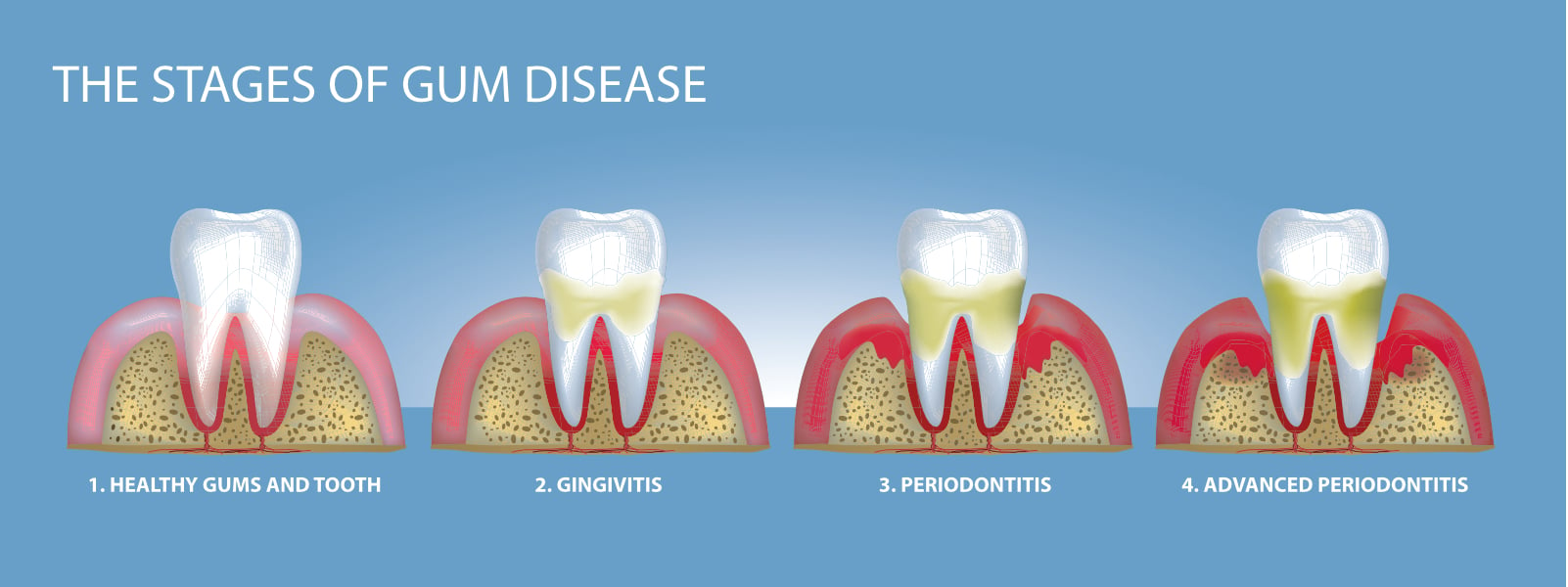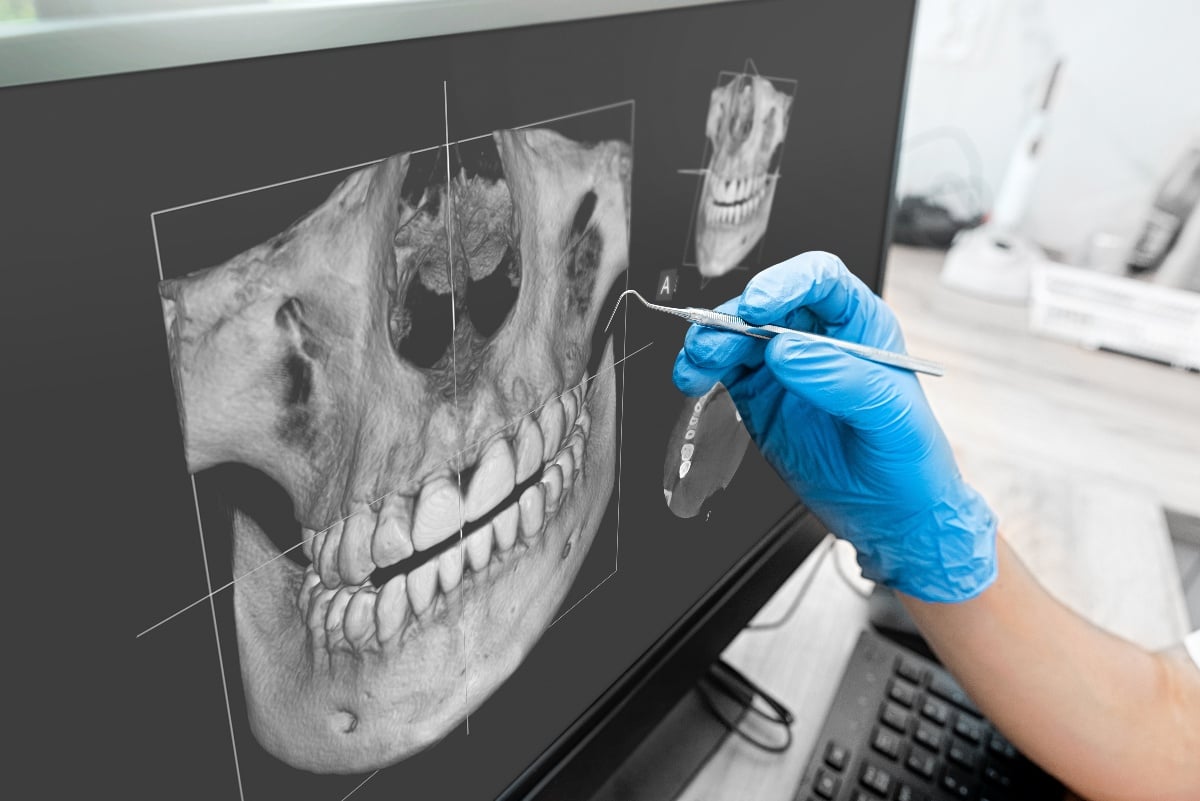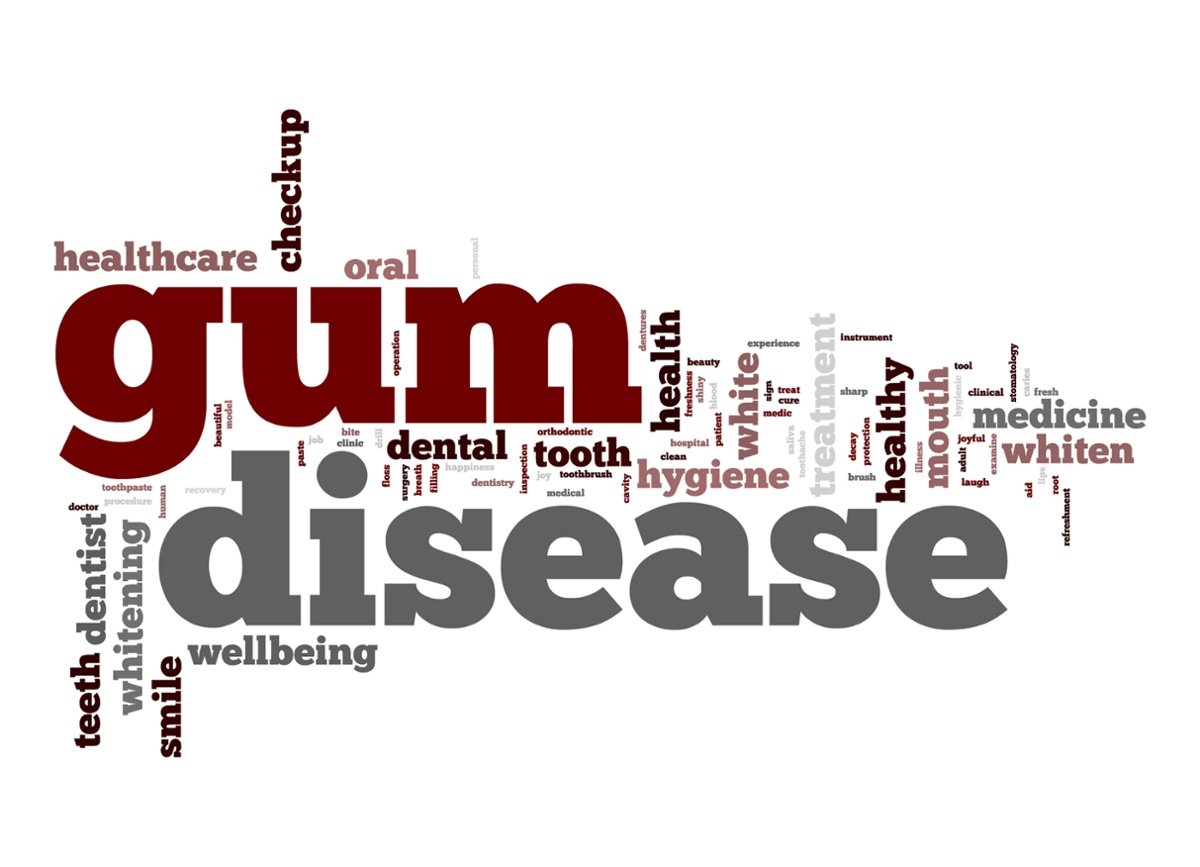Chronic gum disease is a leading cause of tooth loss in adults. Although gum disease is preventable, it remains a common condition with oral and overall health consequences. Early detection and treatment can help you avoid extensive dental treatments and maintain good oral health.
What is Gum Disease?
Gum or periodontal disease is a common oral health condition affecting the gums and bone supporting your teeth. It is caused by a buildup of bacteria in the mouth that leads to inflammation and infection of the gums. In its earliest stage, gum disease is reversible. However, if not diagnosed and treated early, the effects of gum disease cannot be reversed.
Types of Gum Disease
The two primary types of gum disease are gingivitis and periodontitis. Here's what you need to know about each type:
- Gingivitis. This is the first stage of gum disease. It begins as a minor irritation or inflammation of the gums caused by plaque accumulation on teeth and beneath the gums. It is reversible with improved home care and professional teeth cleaning.
- Periodontitis. More than 40% of adults in the United States have periodontitis. This begins if the plaque that causes gingivitis remains on teeth long enough to cause more severe inflammation. Eventually, the inflammation progresses to infection and causes irreversible damage to the gums and bone around your teeth. To prevent tooth loss, periodontitis requires professional management by your dentist.
Risk Factors for Gum Disease
Gum disease can affect you at any time if plaque accumulates for as little as a few days. Several factors that can increase your risk of developing gum disease include:
- Poor oral hygiene. This is the primary risk factor for all people of all ages. The bacteria found in dental plaque must be regularly removed from your teeth and gums to prevent the initiation of gingivitis.
- Tobacco use. Periodontal disease gets its name from the periodontium. This is the term dentists use for the tissues that support your teeth. Tobacco use, particularly smoking, is possibly the number one risk factor for acquiring severe gum disease. It causes significant damage to the periodontium by changing your microflora, reducing blood flow, and impairing your immune system.
- Hormonal changes. Increased hormone levels can make you more vulnerable to gum disease. For example, surges in estrogen and progesterone can cause more gingival blood flow, creating a heightened sensitivity to plaque.
- Diabetes. Consistent and regular plaque removal is essential for those with diabetes. This is due to high blood sugar levels weakening the immune system and increasing your risk of rapid progression of gingivitis to more severe periodontal disease.
- Genetics. While it is still unclear how much of a role genetics plays, researchers have identified at least sixty-five gene variations that may be associated with periodontitis.
- Medications. Some medications, such as antidepressants, heart medications, and anti-seizure drugs, can cause dry mouth and reduce saliva flow, increasing the risk of gum disease. Other drugs, such as some anticonvulsants, immunosuppressants, calcium channel blockers, and hormones, can cause an overgrowth of gum tissue and contribute to gum disease.
- Stress. Research has linked chronic stress to many conditions, including periodontal disease. Stress impairs your immune system’s ability to combat inflammation and infection.
- Poor nutrition and obesity. Your body depends on proper nutrients to help fight diseases like periodontitis and keep you healthy. Additionally, it is thought that the heightened inflammatory state induced by obesity can increase the risk of gum disease.
Symptoms of Gum Disease
The symptoms of gum disease can vary depending on the stage and severity of the condition. The most common symptoms include:
- Red, swollen, and painful gums
- Bleeding gums when you brush or floss
- Gum recession
- Chronic bad breath or a bad taste in the mouth
- Changes in the way your teeth fit together when biting
- Pus draining between your teeth and gums
- Loose teeth or teeth that have shifted
- Changes in the way partial dentures fit
- Pain when chewing
- Gum abscesses
Possible Link Between Gum Disease and Other Health Issues
The inflammation and infection caused by gum disease have been shown to have possible links with several health conditions, such as:
- Heart disease. It is thought that the oral bacteria involved in gum disease can enter the bloodstream and cause inflamed arteries that increase the risk of heart problems.
- Stroke. Several studies indicate a link between periodontal disease and an increased risk of stroke.
- Diabetes. It is strongly believed that there is a link between the 10% of adults with diabetes and the 40% who have periodontal disease. Diabetes has a negative effect on wound healing, taste, and salivary flow. It has also been seen that diabetes precedes periodontitis, which has led to the conclusion that there is a causative effect.
- Respiratory diseases. Poor oral hygiene and gum disease has been shown to have a possible link with some respiratory conditions, such as certain types of pneumonia.
- Dementia. Recent studies have indicated that bacteria from gum disease may contribute to the development of Alzheimer’s disease and other related dementias.
Treatment Options for Gum Disease
The treatment for gum disease is determined by factors such as the stage of your condition, medical health, and the medications you are taking. The treatment options include:
- Deep cleaning by a dental professional
- Scaling and root planing
- Antimicrobial therapy
- Periodontal surgery
- Laser treatment
- Bone or gum grafting
Preventing Gum Disease
Preventing gum disease is critical to maintaining good oral health. Here are some steps you can take:
- Brush and floss regularly. Brush your teeth with a soft-bristled toothbrush at least twice daily and floss at least once daily.
- Use an antimicrobial mouthwash. Using mouthwash can help eliminate microbes that contribute to gum disease.
- Quit smoking. Since smoking is a significant risk factor for gum disease, quitting is essential for maintaining good oral health and preventing diseases like periodontitis.
- Eat a healthy diet. A diet based on nutrient-dense whole foods can help promote good oral health and prevent gum disease.
- Avoid sugary and acidic foods and drinks. These foods and drinks promote plaque development and lead to enamel erosion, which can lead to gum disease.
- See your dentist regularly. Regular dental check-ups and cleanings can help detect gum disease early and prevent a more serious and irreversible condition.
Schedule an Appointment
Contact us online or call to learn more about maintaining healthy teeth and gums.





